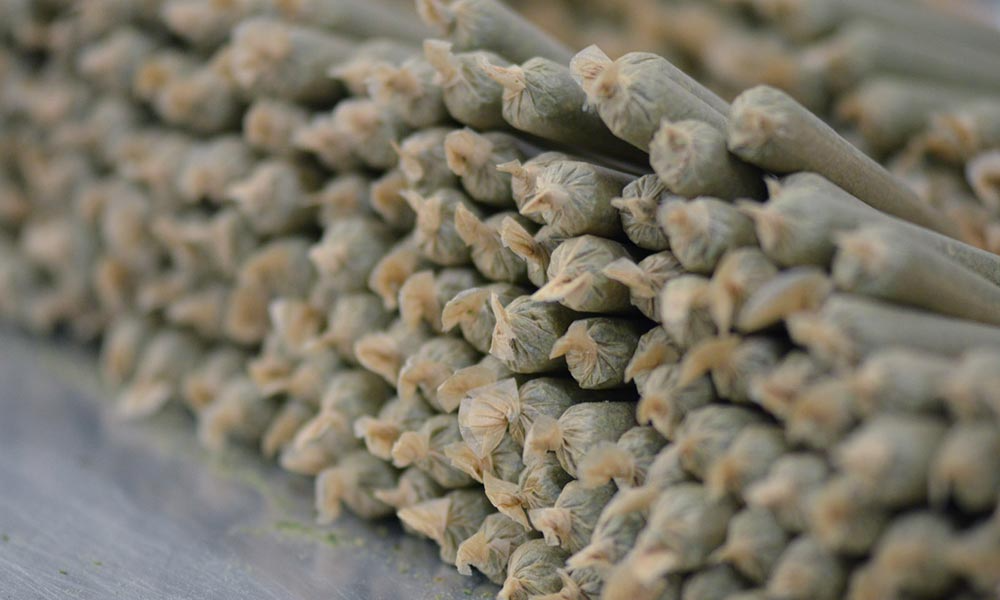
Behind the Scenes: How Hemp-Derived THC Products are Manufactured for Retail Success
Share
With the rise of hemp-derived THC products, the demand for consistent, high-quality offerings has never been higher. Consumers and retailers alike want products that deliver reliable effects, meet safety standards, and adhere to legal regulations. But what does it actually take to manufacture these products and ensure they are ready for retail success? Let’s take a look behind the scenes to explore the intricate process involved in creating hemp-derived THC products that win over customers and dominate store shelves.
1. It Starts with the Hemp: Sourcing Quality Biomass
The journey of hemp-derived THC products begins on the farm, with the careful cultivation of hemp plants. For manufacturers, sourcing high-quality hemp is crucial. The hemp plant must contain low levels of Delta-9 THC (below 0.3% by dry weight to remain federally legal) while being rich in cannabinoids like CBD, which will be converted into hemp-derived THC products during processing.
Why Quality Hemp Matters:
High-quality hemp biomass leads to higher yields of cannabinoids and fewer contaminants during extraction. Farms that follow sustainable growing practices and use organic methods help ensure the final product is free from pesticides and harmful chemicals, which is key for meeting both regulatory standards and consumer expectations.
What Retailers Need to Know:
Retailers should prioritize products that come from trusted sources. Knowing the origin of the hemp used in the products you stock can set you apart, offering peace of mind to your customers who are increasingly concerned about product transparency and safety.
2. Precision Extraction: The Heart of Hemp-Derived THC Production
Once the hemp is harvested, the next critical step is extraction, where cannabinoids, including THC, are carefully pulled from the plant. The extraction method used can dramatically affect the final product's purity, potency, and quality. Today’s most common extraction techniques include:
-
CO₂ Extraction: This method uses pressurized carbon dioxide to pull cannabinoids from the plant, resulting in a clean, solvent-free product. It’s one of the most popular choices for creating high-quality hemp-derived THC.
-
Ethanol Extraction: Ethanol extraction involves soaking hemp in ethanol to extract cannabinoids. It’s an efficient process often used for large-scale production due to its speed and ability to process high volumes of hemp.
-
Hydrocarbon Extraction: Hydrocarbon solvents like butane or propane are used to create highly concentrated products. This method is prized for making potent concentrates like wax and shatter, although it requires careful refinement to remove residual solvents.
Maintaining Purity and Potency:
A clean extraction process is key to ensuring the product remains free from contaminants like chlorophyll, plant waxes, and fats. Advanced filtration and winterization processes are often used to remove unwanted compounds, leaving behind a pure cannabinoid concentrate that forms the basis of various hemp-derived THC products.
Retail Success Tip:
Products that clearly state the extraction method used on their packaging provide extra transparency, which consumers appreciate. Retailers should look for products that showcase their commitment to clean, high-quality extraction processes, as this can be a selling point to educated customers.
3. Converting CBD to THC: The Key to Hemp-Derived THC
Unlike cannabis-derived THC, hemp-derived THC is often created through a chemical conversion process. Since hemp plants naturally contain low levels of Delta-9 THC, manufacturers convert the abundant CBD (cannabidiol) in hemp into THC using a chemical reaction.
The CBD to THC Conversion Process:
This conversion typically involves introducing an acid catalyst to CBD in a controlled laboratory setting, which triggers the molecular transformation into Delta-8 or Delta-9 THC. Post-conversion, the compound undergoes multiple stages of purification to ensure all residual chemicals used in the reaction are removed, ensuring a safe, high-quality product for consumers.
Why This Matters for Retailers:
Understanding how hemp-derived THC is made can help you explain product origins to curious customers, increasing their confidence in trying these innovative products. Retailers can also use this knowledge to stock products from manufacturers that demonstrate transparency and provide third-party testing results to verify purity.
4. Rigorous Testing for Quality and Safety
The safety and consistency of hemp-derived THC products are critical for retail success. To ensure this, manufacturers rely on rigorous third-party lab testing. Testing typically covers:
- Potency: Ensuring that the product contains the correct levels of THC and other cannabinoids as advertised.
- Purity: Screening for contaminants such as pesticides, heavy metals, solvents, and microbial impurities.
- Compliance: Verifying that the THC content remains below the legal threshold of 0.3% Delta-9 THC by dry weight for hemp-derived products.
Third-Party Lab Testing:
After extraction and processing, samples of the hemp-derived THC product are sent to independent labs for testing. These labs provide Certificates of Analysis (COAs), which document the product’s cannabinoid profile, potency levels, and any detected contaminants. These reports are vital for regulatory compliance and ensure that customers are getting a safe and accurately labeled product.
Retailer Tip:
Stocking products with readily available COAs increases consumer trust. Make sure the products you carry have clear, accessible lab reports—either through QR codes on packaging or available on the manufacturer’s website. This level of transparency reassures customers about the safety and efficacy of what they’re purchasing.
5. Product Formulation: Creating Consumer-Focused Products
With cannabinoids extracted and tested, manufacturers move to the formulation stage, where these concentrates are turned into final products like gummies, tinctures, vapes, and topicals. This stage requires precision and care to ensure consistency across batches.
The Role of Formulation Experts:
Formulation experts work to create products that meet consumer expectations in terms of taste, effectiveness, and experience. This involves blending the extracted THC with carrier oils (for tinctures), base ingredients (for edibles), or other active ingredients that align with the product’s intended use.
Why It Matters:
Customers expect consistency—whether it’s the same flavor experience every time they buy a gummy or the same reliable effects from a tincture. Retailers benefit from stocking products that deliver consistent results, building customer loyalty and repeat sales.
6. Packaging and Labeling: Standing Out on Retail Shelves
Once the product is formulated, the next step is packaging and labeling. Packaging serves a dual purpose: protecting the product’s integrity and catching the consumer’s eye. Today’s packaging trends lean toward eco-friendly materials, tamper-proof designs, and bold graphics that stand out on dispensary or retail shelves.
Clear and Compliant Labeling:
Labels must be both informative and compliant with regulations. Essential elements include the cannabinoid content (especially THC levels), recommended serving size, ingredients list, and a QR code linking to the product’s lab results. Clear labeling not only ensures legal compliance but also helps customers make informed purchasing decisions.
Why Packaging Matters for Retail Success:
Eye-catching, professional packaging can be a deciding factor for customers browsing your store. Stocking products that are well-packaged and compliant with legal standards ensures smoother sales and fewer returns due to confusion or mislabeling.
Conclusion: Behind Every Great Product Is a Great Process
The manufacturing process of hemp-derived THC products is complex, but each step—sourcing, extraction, testing, formulation, and packaging—plays a crucial role in delivering high-quality products to the market. For retailers, understanding this behind-the-scenes process is key to making informed choices about what to stock and how to communicate product value to consumers.
By prioritizing products made with top-tier hemp, cutting-edge extraction methods, rigorous testing, and consumer-friendly packaging, you can ensure your customers are receiving safe, effective, and enjoyable hemp-derived THC products. This knowledge not only sets your store apart but also drives retail success in an increasingly competitive market.
Want to stock premium hemp-derived THC products that are expertly crafted for retail success? Stash House Hemp offers a range of high-quality products that meet the highest standards of safety, consistency, and innovation. Contact us today to learn how we can help your store thrive!
